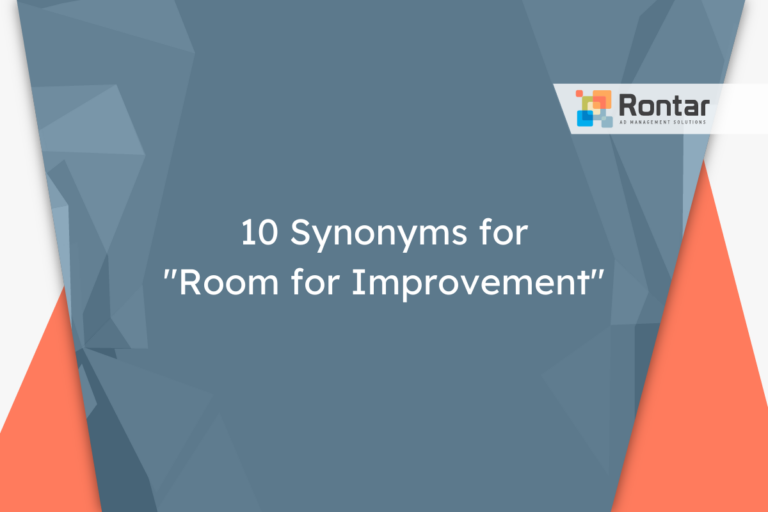10 Other Ways to Say “I Hope You Are Ok”

Saying “I hope you are ok” is a common way to show concern and support for colleagues and clients, but sometimes you might need to say it differently depending on the situation.
This article lists 10 alternatives to help you express empathy and support in your professional emails and messages. Each option is explained with examples to show you how and when to use them effectively.
Is It Professional to Say “I Hope You Are Ok”?
Using the phrase “I hope you are ok” in an email opener can be seen as professional, formal or informal, and polite. Its use is best suited for correspondents with whom you have a previously established relationship or in situations where expressing personal concern is appropriate.
Here’s a short example:
Greetings Mark,
I hope you are ok. I wanted to check in and see how you're managing with the project timeline considering the recent weather conditions in your area. Please feel free to reach out if there's any way we can assist.
Best regards,
Emily
Let’s look at the pros and cons of using this phrase.
Pros:
- Shows empathy and concern for the recipient’s well-being.
- Softens the tone of the email, making it more personal.
- Helps build a connection with the recipient.
Cons:
- May be considered too informal in very professional settings.
- Could be seen as intrusive or overly familiar if not used with a known recipient.
- May dilute the main message if overused or if the sender’s intention is not clear.
Someone might want to use an alternative phrase if the context requires a more formal tone or if they wish to maintain a certain professional distance.
10 Other Ways to Say “I Hope You Are Ok”
When you want to express concern or check in on someone in a professional but friendly manner, consider these alternatives to “I hope you are ok”.
- Wishing you well
- Hope you’re holding up
- Thinking of you
- Hope things are going smoothly
- Just checking in on you
- Sending good vibes your way
- I trust you’re doing well
- Keeping you in my thoughts
- Hope you’re doing fine
- Wishing you strength
1. Wishing you well
This alternative to “I hope you are ok” adds a touch of warmth and concern, making it appropriate for semi-formal and professional settings. It suggests a genuine interest in the recipient’s well-being without being overly personal. This phrase is slightly more formal and can be used with colleagues, clients, and other professional contacts via email or message.
It’s great for situations where you want to convey your hopes for someone’s well-being or after hearing they’ve been through a challenging time. It’s polite, considerate, and carries a tone of professional etiquette.
Email sample:
Dear Alex,
Wishing you well as you transition into your new role. We’re all here if you need support during this exciting time.
Best,
Jamie
2. Hope you’re holding up
This phrase is a more informal synonym that’s best used in contexts where you’re aware the recipient may be experiencing stress or challenges. It strikes a balance between showing concern and acknowledging tough times without prying too much into personal details, making it suitable for communication with colleagues or peers.
This alternative works well in emails or messages when you want to show empathy and support, especially in a workplace environment during stressful periods or after a significant event. It still maintains a professional edge but brings a personal touch to your communication.
Email example:
Hello Chris,
Hope you're holding up under the year-end rush. Don't hesitate to let me know how I can help.
Warm regards,
Diane
3. Thinking of you
This is a gentle, empathetic expression that conveys concern and thoughtfulness. It is more informal than the original phrase and is most appropriate for use with team members or colleagues you share a closer relationship with. It communicates warmth and kindness, showing personal attention without crossing the line of professionalism.
It suits emails or messages sent in a variety of professional scenarios, especially when someone is going through a challenging time or you want to express solidarity and support. It helps to strengthen the bond between professional contacts or team members.
Here’s an example:
Hi Brenda,
Thinking of you and hoping your project presentation is going well. Remember, we're all cheering for you!
Best wishes,
Sam
4. Hope things are going smoothly
This message conveys a wish for the recipient’s current endeavors or challenges to be problem-free and is appropriate for both formal and informal business contexts. It is slightly more specific than the original phrase, making it better for situations where the sender has some understanding of what the recipient is currently facing or working on.
It is particularly suited for recipients who are working on projects, events, or personal milestones within a professional setting. This phrase is polite, supportive, and subtly inquires about the recipient’s progress without being intrusive.
Example:
Dear Jordan,
Hope things are going smoothly with the new software implementation. Let me know if you face any hurdles.
Kind regards,
Patricia
5. Just checking in on you
This phrase is a direct and informal way to show concern, making it ideal for colleagues or team members you know well. It suggests a friendly follow-up and indicates that you’re there if the recipient needs support or someone to talk to. While it’s informal, it can still be perceived as professional when used in the right context.
This alternative is effective in emails or messages focusing on mental health check-ins, follow-up after a colleague has been sick or absent, or simply to maintain contact and show you care. It is polite and fosters a sense of camaraderie and support.
Email sample:
Hey Taylor,
Just checking in on you to see how you’re feeling after last week’s flu. We all hope you’re bouncing back and feeling better.
Take care,
Robin
6. Sending good vibes your way
This phrase is decidedly informal and best used with colleagues or professional contacts you have a more relaxed relationship with. It communicates positive wishes and upliftment in a light-hearted manner. It’s perfect for situations that call for a boost of morale or when you want to convey support without being too serious.
It’s appropriate for emails or messages sent to team members in creative fields or more laid-back professional environments. This phrase is polite and carries a friendly undertone, making it a great way to show you’re thinking of someone.
Here’s an example:
Hello Kim,
Sending good vibes your way for your presentation today. You're going to nail it!
Cheers,
Alex
7. I trust you’re doing well
This is a formal alternative that implies confidence in the recipient’s ability to manage their situation. It’s suitable for professional contexts where you have a respectful distance. This expression offers a way to start a conversation on a positive note, assuming that things are going well unless stated otherwise.
It works best in communications with new clients, senior colleagues, or other professionals where you want to maintain a polite and somewhat reserved tone. It’s an excellent way to initiate contact while showing respect for the recipient’s circumstances.
Email example:
Dear Morgan,
I trust you’re doing well and that the project is progressing as planned. We’re here to support you in any way needed.
Sincerely,
Glen
8. Keeping you in my thoughts
This phrase is more personal and should be used when you have a close or caring relationship with the recipient. It conveys deep concern and thoughtfulness, suggesting that the sender is actively thinking about the recipient’s well-being. This option is more informal but can be used in a professional context with the right rapport.
It’s particularly suited for times when you know the recipient is going through a significant life event or challenge, offering a sense of solidarity and support. This phrase is polite and empathetic, ideal for messages of support or condolence.
Email sample:
Dear Olivia,
Keeping you in my thoughts during this difficult time. If there’s anything we can do to help, please let us know.
With sympathy,
Ron
9. Hope you’re doing fine
This phrase is straightforward and can be used in both formal and informal contexts. It’s a bit more casual than the original, making it suitable for checking in on someone without needing to know the specifics of their situation. It’s polite and expresses a general wish for the recipient’s well-being.
This alternative is appropriate for follow-up emails, messages to colleagues after a brief absence, or when you have heard someone has been ill or facing challenges. It allows you to express concern in a professional manner without being overly personal.
Example:
Hi Leslie,
Hope you’re doing fine and recovering well after your surgery. Let us know if you need more time to rest.
All the best,
Georgia
10. Wishing you strength
This expression conveys specific support for someone facing a difficult or challenging situation. It’s a more formal alternative that provides moral or emotional support. While it can be seen as somewhat serious, it is still polite and shows a deep level of concern and empathy for the recipient’s circumstances.
It is ideally used in professional emails or messages when someone is dealing with personal challenges, work-related stress, or health issues. This phrase communicates solidarity and respect for what the recipient might be going through, reinforcing a sense of team spirit and support.
Email sample:
Dear Elliot,
Wishing you strength as you face the challenges before you. Remember, your team is behind you every step of the way.
Warm regards,
Natalie
Final Thoughts
Expressing concern in a professional setting is key to building strong relationships with your colleagues and clients. The alternatives provided offer a range of options to convey your message in a manner that’s suited to different situations. Choosing the right words can make your emails and messages more thoughtful and personalized.






